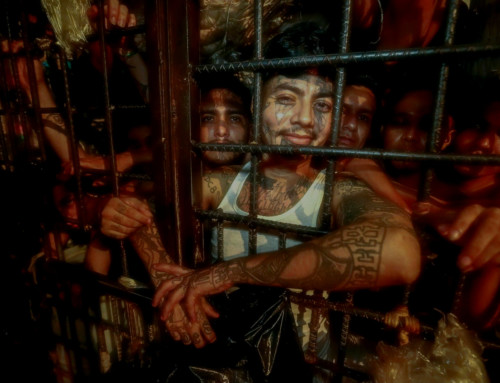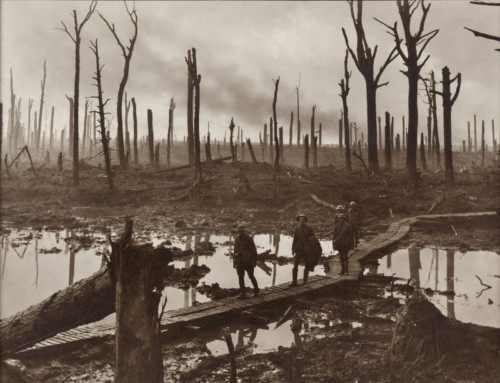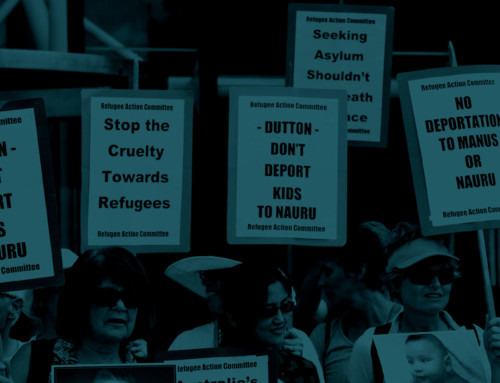(This post is co-authored with John by Associate Professor Miranda Forsyth of RegNet)
Instability and the potential of conflict recurrence could be brewing in Bougainville.
Yesterday John Momis, the President of the Autonomous Bougainville Government, expressed extreme concern about statements by PNG Prime Minister O’Neil that cast doubt on whether the referendum on independence for Bougainville should be held. The referendum is a legally binding part of the Bougainville Peace Agreement. It is scheduled for June 2019.
In the past we have also heard reckless Australian politicians say that honouring a referendum vote for independence is a bad idea because an independent Bougainville would be such a small country that it would not be economically viable.
Of course it is true that transition to independence would not be easy for Bougainville. But it is false that very small countries are more likely to struggle economically than larger ones[1]. If Bougainville votes for independence in 2019, the path of integrity to honour the spirit of the peace agreement is for the parties to work together for a gradual, cooperative and peaceful transition to independence. It is a responsibility of the UN Security Council and its members to ensure that PNG honours what is a UN-ratified and legally binding agreement.
If regional diplomats mangle peaceful and orderly transition arrangements in the way they did with the 1999 Timor-Leste independence referendum[2], then it is the responsibility of the United Nations and its members, particularly Australia and New Zealand, to pick up the tab for a transitional administration in the way it did, with success, in Timor-Leste.
Australia and New Zealand have special responsibilities to the international community and to the people of Bougainville to ensure the referendum clauses of the Bougainville Peace Agreement are honoured in good faith. New Zealand has that responsibility because of its splendid role as the international lead in the Bougainville peacekeeping operation. Australia has that responsibility not only because of its important role in the peace process. The devastation caused by an Australian mine, and the reckless approach the Australian government adopted to the mine when it was the colonial power in Bougainville, was one important cause of the war.
The ordinary people of Bougainville will not be understanding if the PNG government advances spurious technical arguments on why they should be denied their referendum. It will be an extremely dangerous situation for our region if this happens. Australia’s Department of Foreign Affairs and Trade likes to talk about the importance of preventive diplomacy. After Timor-Leste, Bougainville 2019 will be the second great test of whether it is any good at it.
Whatever we think about whether independence for Bougainville is a good or bad thing, the more important principle is that we work to honour UN-ratified peace agreements. If our region fails to do that, if the UN Security Council fails to, we will find it more difficult to reach peace agreements to end future wars.
Australian Foreign Minister at the time, Alexander Downer, currently Australian High Commissioner to the UK, has a personal responsibility in this. When the Bougainville Revolutionary Army (BRA) was saying it would walk out on the peace agreement because it did not trust a future PNG government to honour the referendum, the key players on both sides agree it was the Australian Foreign Minister who, to his eternal credit, saved the day. He did this by assuring the BRA that the international community would never allow PNG to disrespect the referendum, just as it would not allow Indonesia to do so in East Timor[5].
Mr Downer and Australia’s current Foreign Minister need to speak up today to remind Prime Minister O’Neil that this assurance was given. Foreign Minister Julie Bishop needs to insist to PNG that Australia and the UN are obliged to work to honour their past assurances in the high politics of peace.
[1] There are both economic advantages and disadvantages for countries being larger. These are complex in nature and need not detain us here. Perhaps the most influential systematic research was conducted by William Easterly and Aart Kraay (2000) for the World Bank. It found that on balance smallness (population less than one million) increases rather than reduces GDP per capita, though it increases volatility. The best resource on this question is the many articles and books published by Alberto Alesina of Harvard University. Alesina likes to point out that 6 of the 10 fasting growing economies in the world in the decades since 1960 had populations under 1 million. The United States is the only large country on this top ten list. The fastest growing economy outside East Asia since 1960 has been Botswana, with a population of one million, and Malta (300,000) was the fastest growing economy in Europe[4].
References:
[2]Braithwaite, John, Hilary Charlesworth and Aderito Soares. 2012. Networked Governance of Freedom and Tyranny: Peace in Timor-Leste. ANU Press
[3]Easterly, William, and Aart Kraay. 2000. ‘Small states, small problems? Income, growth, and volatility in small states.‘ World development 28(11): 2013-2027.
[4]Alesina, Alberto. 2003. Joseph Schumpeter Lecture: The size of countries: Does it matter? Journal of the European Economic Association 1(2-3):301-316.
[5]Braithwaite, John, Hilary Charlesworth, Peter Reddy and Leah Dunn. 2010. Reconciliation and Architectures of Commitment: Sequencing Peace in Bougainville. ANU Press.






Leave A Comment